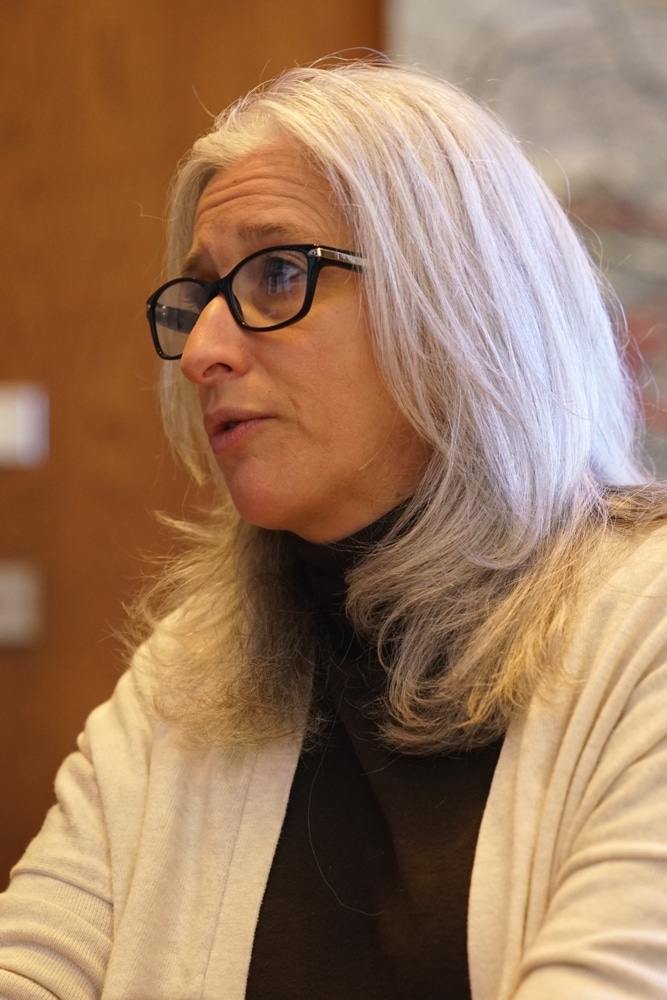
After the cancellation of all wet lab chemistry in the Norris Chemistry Building Nov. 9, Michael Hill, chemistry department chair and professor, and Wendy Sternberg, vice president for academic affairs and dean of the college, released a statement via email Feb. 13 to Occidental faculty and administrators concerning substantial renovations to Norris Chemistry Building that occurred over winter break. According to the statement, the renovations addressed the building’s ventilation, plumbing and storage systems — the issues that specifically prompted last semester’s cancellation. The renovations addressed all major issues, according to Hill, allowing all labs and research to resume at the start of the Spring 2018 semester without any restrictions.
According to Sternberg, the Facilities Department completed a thorough survey of the building’s plumbing network, replacing corroded drains, faulty fixtures and faucets. In regards to the building’s ventilation system, Hill said that Facilities brought in an engineering firm that identified deficiencies relating to the HVAC system installed in 2016. Primarily, Facilities determined that a number of old supply vents — those not replaced during the renovation — could not handle the amount of air circulated by the newly installed system. As a result, Facilities engaged in a re-engineering and partial reinstallation of the ventilation system, according to Hill. Sternberg said that Facilities also undertook a thorough cleaning of the building’s air ducts.
According to Sternberg, the renovations also enhanced the building’s chemical storage capacities, one of the primary concerns brought to light last semester. Teaching and research labs now have the ability to store a greater quantity of flammable materials, and Hill and Sternberg both said that the department’s conversion of an old darkroom into a dedicated waste staging area greatly enhances the building’s safety.
The statement highlighted the hiring of a new chemical hygiene officer, contracted to update the department’s protocols and procedures and to draft a chemical hygiene plan. According to Sternberg, this chemical hygiene officer is Scott Brehmer of Citadel Environmental Services Inc. Eileen Spain, associate dean of the college for research and Carl F. Braun, professor of chemistry, said that these protocols and procedures will emphasize the importance of safety and precaution.
“The department is redoubling our efforts to think about ways to create a culture of safety when students first come to the 100 level labs,” Spain said.
The college also pursued a thorough cleaning of lab spaces and a campaign to dispose of old, unused chemicals, according to Sternberg. Hilary Polak, Occidental’s environmental health and safety director, spearheaded this effort.
Though chemical disposal routines like the one carried out by Polak occur at the end of every semester, Sternberg said that the disposal routine last December was larger than most; the effort involved the decommissioning of over 2,500 unused chemicals. Hill said that the size of the operation, as well as protocol violations committed by North State Environmental, the company contracted to carry out the chemical disposal, led to the accidental release of vapors and the consequent reclosure of the Norris Chemistry Building Dec. 13.
Hill said that although the mishap cannot be directly related to Norris’ limitations, the fact that such a large-scale disposal of chemical waste occurred within a teaching lab was itself problematic. The designation of an updated chemical storage space — removed from the main footprint of the building — should minimize contact with hazardous chemical waste in the future and the likelihood of these types of accidents, according to Hill.
Beyond the correction of the short-term issues, Hill said that he has confidence in the college’s dedication towards improving Norris in the long term, as evidenced by the administration’s green light to begin brainstorming ideas for a large-scale renovation.
“What we have been authorized to do is to come up, between now and April, with a conceptual plan for a major renovation of the facilities. I think there is widespread agreement now that this has to be a priority. It has to be put in place,” Hill said.
In conversations with Occidental’s board of trustees, Hill and other faculty and administration members managed to push the case for long-term renovations by highlighting the influence and impact of Occidental’s chemistry building both on and beyond campus, according to Hill.
“Investing money in this building will have a big impact on the student body at large,” Hill said.
One such investment came with the hiring of Professor Emmanuelle Despagnet-Ayoub, currently an instructor at the California Institute of Technology. Despagnet-Ayoub is teaching a two-credit course at Occidental this semester but will begin full-time at the college in Fall 2018, according to Sternberg. Sternberg added that the college will pursue a multi-year renovation of every teaching and research space in the building. Although plans are always in the works to solicit donations from outside donors, Sternberg said the college is committed to finding the necessary funds within the school’s existing budget.
In light of recent developments, Hill said that he believes the school is on the right track towards not only fixing immediate problems but towards developing a plan for the long-term success of Occidental’s chemistry program.
“We’ve done everything that we could possibly do in the short term, but none of that would have really moved the needle had we not had this piece about dealing with the DNA of the building,” Hill said. “That’s what we’re dealing with now.”
![]()


































